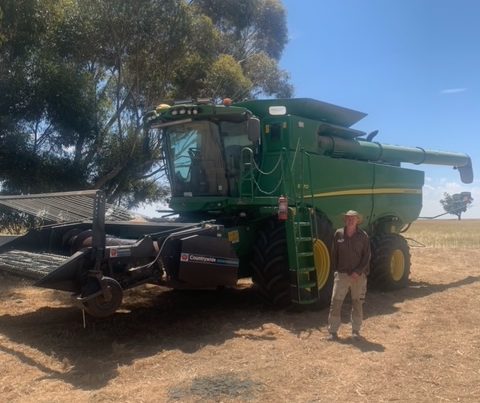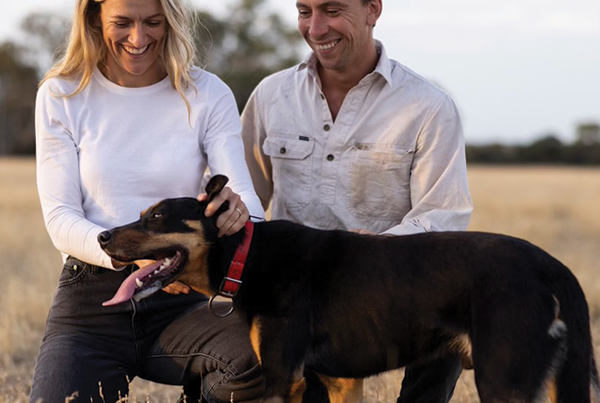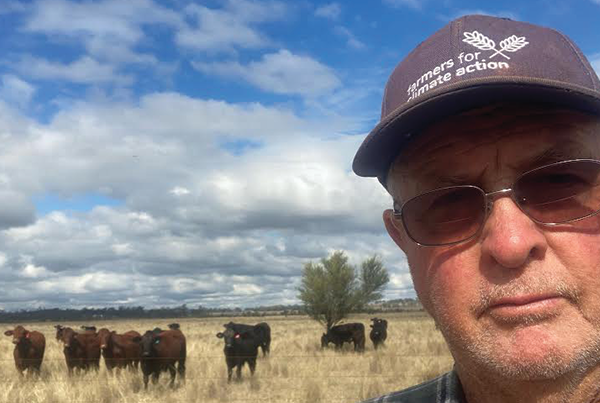At a glance
Who: Georgia Beattie
What: Organic Mushrooms
Where: Diggers Rest, Vic
Can you tell us about your property/enterprise?
We are Australia’s largest organic mushroom farm. We specialise in growing premium exotic mushrooms (Shiitake, Oyster, Lions Mane) and also grow over 10T per week of button and cup mushrooms. We supply Coles, Woolworths, Costco and independent grocers Nationally. We have a history of over 30 years in farming and believe the future of food needs to incorporate regenerative practices. Our team lives by our values to deliver amazing mushrooms through sustainable, clean, high quality farming practices that create a positive environmental impact.
We are ACO (Australian Certified Organic) with Freshcare, HARPS, HACCP quality practices on farm.
What are some of the opportunities you see for your business/property in coming years?
The headline excitement for me is developing the ability to grow mushrooms on waste in a circular economy design. I have spent the past 7 years on the Secondbite board, which is a NFP redistributing retail food waste to charities in need. We have had different manufacturers and producers from coffee to food waste out to the farm to look at ways we can collaborate.
I completed my undergraduate studies in the US and will be going back in March as part of my Nuffield scholarship to visit some high-tech farms such as Aerofarms, Smallhold and Gotham Greens. I think the US does point of sale, storytelling and technology so well that can be leveraged in Australia. I look forward to partnering on a few initiatives in Australia with these sorts of businesses.
For every 1kg of mushrooms that I produce, I have 4kg of spent mushroom compost. We know that mushroom compost has fantastic soil regeneration opportunities, there are some natural projects that can flow with farms in our vicinity.
We’ve also been playing around with creating mycelium packaging for some cool Australian startups.
And what are your main challenges now, and into the future?
My biggest challenge at the minute is logistics. We are a small farm, however, cover a large footprint supplying the supermarket nationally. This means that our logistics partner has to really care for our product and ensure the cool change is maintained. Due to the s size, we found the big logistic companies don’t see the benefits in looking after a small business.
There really needs to be more support in this area, if small farms can’t get produce to customers they will be forced out of the industry resulting in further consolidation.
My second biggest challenge is packaging and how we find a balance between delivering a quality product onto the shelf while also allowing the customer to see and judge the product before buying. This inevitably involves some sort of clear plastic which I’m having a very difficult time finding a solution. There is a great new Melbourne start-up called Phantm that is creating a compostable punnet which I’m really excited about, all good things take time though!
How has climate change impacted your farm business?
I chose horticulture so I could grow indoors and not be as susceptible to climate change however there have been some ideas of the business impacted.
The largest area of concern is a replacement for the peat moss used as our growing substrate. It is currently mined and imported from Europe. It’s not sustainable for the planet and it’s also not realistic to rely on such a critical import from so far away. I’m developing mushroom strains that can be grown on waste as part of my Nuffield studies, we’re also looking at alternative substrates made from waste.
What are some of the on-farm adaptations or changes you’ve been employing in recent years and what’s driving them? How successful have they been, and what benefits have you seen as a result? (have you collected any evidence of these benefits, and if so could you share this?)
I’ve spent most of my career in startups and tech, so I naturally manage our farm in an agile way where we run continual build-measure-learn (BML) sprints. BML involves building a product/change, measuring its outcome and reporting the learning from implementation to the whole business rather than an isolated team. These can run over a day, week or month. The outcome creates a healthy cadence of innovation, robust and fast analysis and a burning platform for improvement.
Standard diversity and inclusion policies have been a really easy win for our farm. It’s very common thinking for younger farmers however I am still surprised when this management architecture and design is not taken seriously in agriculture.
Most of our employees have IT, or some sort of technology qualification which helps in their thinking for systems architecture. It also means that we can prototype automation on farm rather than outsourcing.
What are your hopes for Ag in Australia, into the future?
I see braveness as being a huge opportunity for young people. Being the change that you want to see in the world is really going to pay dividends when we are forced to make changes that are conscious of the environment, animals, communities and people.
I’ve seen progressive businesses identify the consciousness future generations have and the way they need to engage with brands, products and services. As a consequence we’re starting to see more young people in leadership positions and on boards, making sure there is a voice of the future concerning the environment and the way we solve problems.
I was recently in a strategy session for an agriculture association where diversity and inclusion initiatives were deemed a ‘trend’ and something that ‘only listed companies incorporate’ into their constitution and communities. I was recently awarded Organic Female Farmer of the year and part of my work within the industry will be to develop some solutions to overcome this type of thinking. I’m open to ideas and help if anyone would like to join me on this important work for agriculture in Australia.






